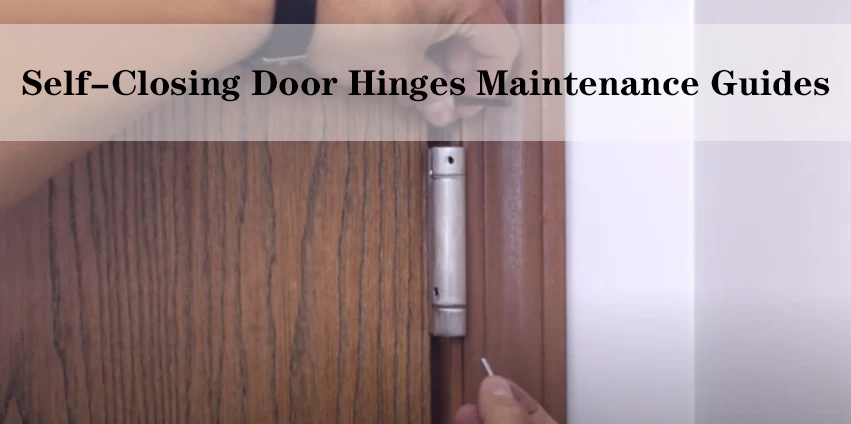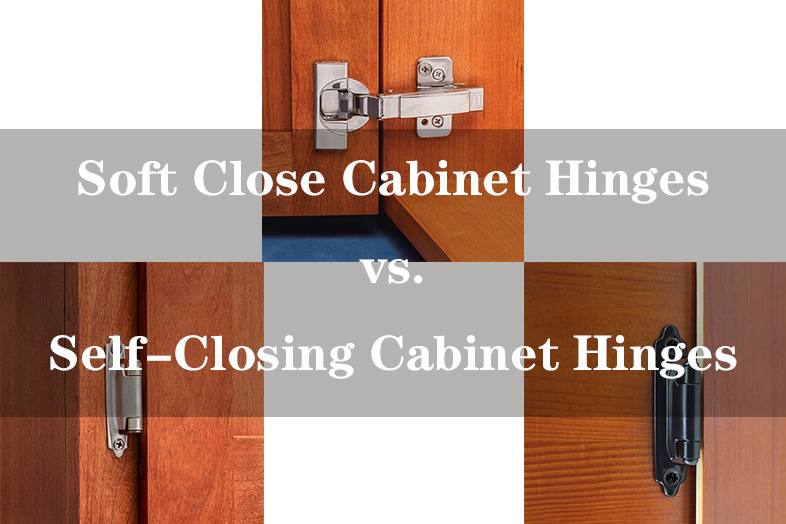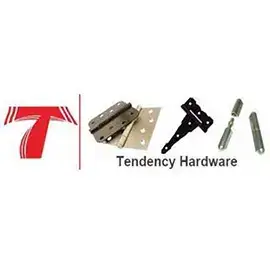Heavy-duty hinges might not be the star of the show, but they’re the backbone of doors and gates, carrying the load and ensuring everything swings smoothly. If you’re looking to give these unsung heroes a longer life, you’ve come to the right place. Let’s delve into some practical advice on how to extend the life of your heavy-duty hinges.
1. Choosing the Right Hinges
The journey to hinge longevity begins with making the right choice. When selecting heavy-duty hinges, ensure they’re specifically designed to handle the weight and size of your door or gate. Hinges that are a perfect match for the load they’ll bear tend to last longer and perform at their best. Common heavy duty hinges types and their features:
Weld-On Hinges
Welded attachment for maximum strength and security.
Suitable for heavy gates and doors subjected to frequent use.
Available in various sizes and materials for versatility.
Strap Hinges
Aesthetically pleasing with decorative options available.
Suitable for both functional and decorative heavy doors.
Various sizes and finishes to complement different designs.
Barrel Hinges
Cylindrical design for rotational movement.
Enables smooth swinging motion for heavy gates.
Available in different diameters and materials.
Gate Hinges
Tailored for gates, offering the right amount of support.
Different types for various gate sizes and styles.
Some options include self-closing mechanisms for added convenience.
Butt Hinges
Basic design suitable for a range of heavy applications.
Affords smooth operation for doors and gates.
Multiple size and material options for diverse needs.
2. Quality Matters
Investing in quality hinges is like laying a sturdy foundation for their extended lifespan. High-quality hinges are crafted to endure daily wear and tear, offering superior resistance against rust and corrosion. Opt for materials like stainless steel or brass, known for their exceptional durability.
3. Choose a High Quality Hinge Supplier
Selecting a quality hinge supplier is essential for durable doors, gates, and more. Look for reputation, range, and quality standards. Customization options, expert support, and material quality matter. Consider value over price, timely delivery, and after-sales service. Prioritize sustainability if needed. A good supplier ensures reliable, long-lasting hinges that suit your needs.
4. Proper Installation
While installing hinges might seem like a straightforward task, doing it correctly matters significantly. Make sure the hinges are aligned accurately and securely fastened. If you’re not entirely confident in your installation skills, consider enlisting a professional to ensure everything is in its proper place.
5. Regular Lubrication

Lubrication is like a secret weapon for hinges. Regularly applying lubricant to the pivot points of the hinges keeps them moving smoothly and prevents damage caused by friction. Use a lubricant specially formulated for hinges and avoid heavy oils that can attract dirt and debris. And how to lubricate heavy-duty hinges?
Choose the Right Lubricant: Opt for a lubricant specifically designed for hinges. Avoid using heavy oils or greases that can attract dust and debris, leading to a buildup that hampers smooth movement.
Cleaning: Before lubricating, clean the hinges to remove any dirt, dust, or old lubricant. Use a cloth or a soft brush to gently clean the hinge’s moving parts.
Application: Apply a small amount of the chosen lubricant to the hinge’s pivot points. Focus on the areas where metal meets metal. Avoid over-lubricating, as excess lubricant can attract dirt.
Movement: Open and close the door or gate several times to ensure the lubricant is evenly distributed across the hinge’s moving parts.
6. Check for Loose Screws

Hinges can become loose over time due to constant movement. Regularly inspect the hinge screws and tighten them if needed. Loose screws can lead to misalignment, affecting the hinge’s performance and overall longevity.
7. Avoid Overloading
One of the fastest ways to wear down heavy-duty hinges is overloading them. Ensure that your doors and gates fall within the weight limits specified by the hinge manufacturer. Overloading hinges places undue stress on them and can result in premature wear and tear.
8. Preventive Maintenance
Routine maintenance works wonders in preserving your hinges’ life. Regularly clear the hinges of dirt and debris, as these particles can lead to friction and damage over time. A soft brush or cloth can go a long way in keeping your hinges clean and operational.
9. Protect Against Harsh Weather
If your hinges are exposed to the elements, consider safeguarding them against harsh weather conditions. Rain, snow, and extreme temperatures can accelerate wear and rust. Applying a protective coating or covering the hinges when possible can help extend their lifespan.
10. Address Rust Promptly
Even the best hinges can develop rust over time, especially when exposed to moisture. If you spot rust, deal with it promptly. Use a rust remover and apply a rust-resistant coating to prevent further corrosion.
11. Avoid Slamming
The habit of slamming doors and gates can inflict undue stress on hinges. Encourage gentle closing to minimize strain. If your door or gate features a self-closing mechanism, make sure it’s functioning correctly to prevent jarring slams.
12. Regular Inspections
Make it a habit to conduct periodic inspections of your heavy-duty hinges. Look for signs of wear, rust, or misalignment. Detecting issues early allows you to address them before they escalate into major problems.
In Conclusion
Prolonging the life of heavy-duty hinges is a combination of wise choices and diligent maintenance. Carefully selecting the right hinges, focusing on quality materials, and ensuring proper installation are fundamental steps. Regular lubrication, cleaning, and timely issue resolution all contribute to the hinges’ longevity. Remember, a little care today can pay off in the form of smooth and reliable door and gate operation for years to come.

























